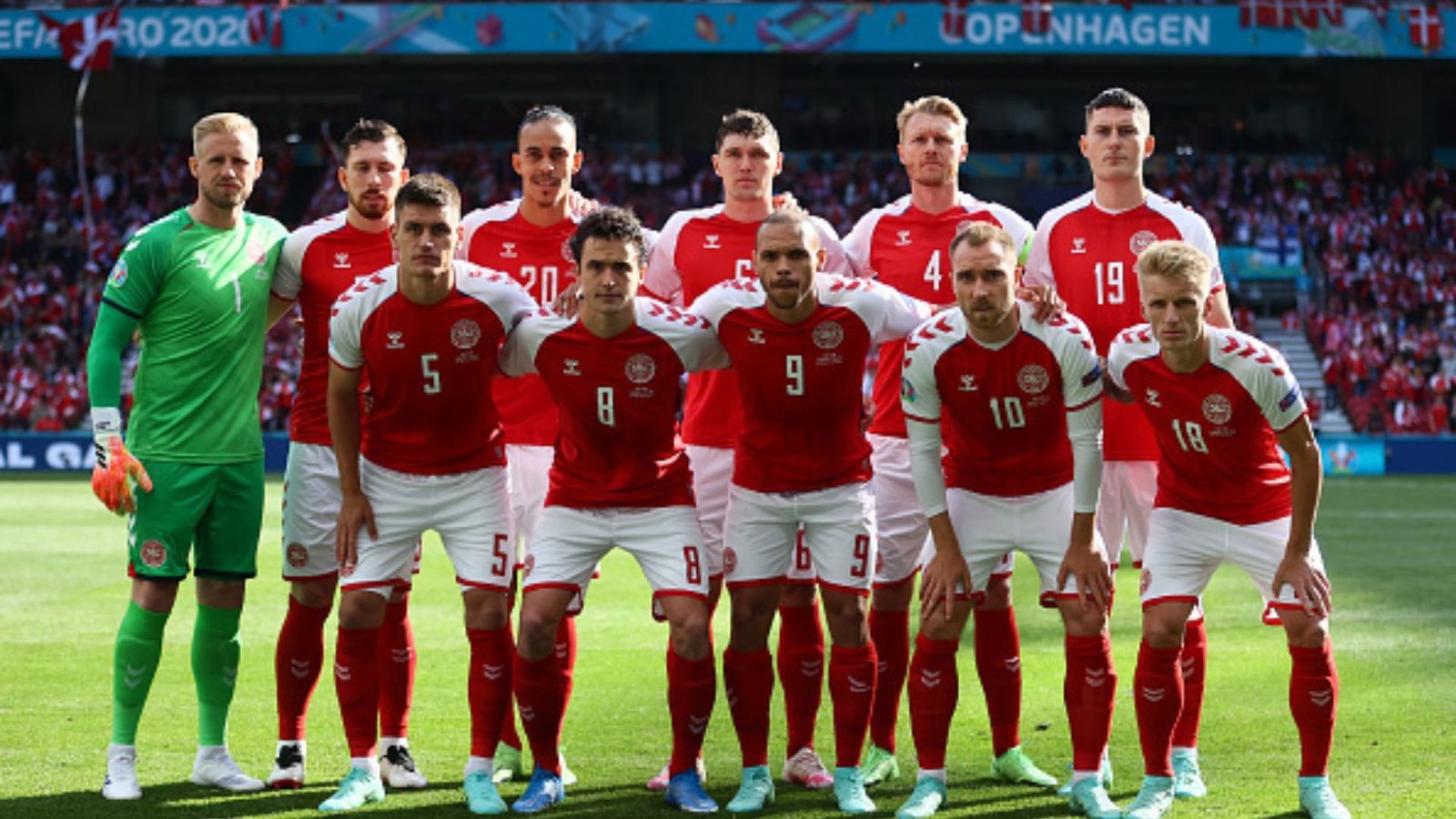The sporting world plunged into a state of immense grief after Denmark's Christian Eriksen suffered a cardiac arrest in the middle of a European Championships fixture and collapsed on the pitch. The outpouring of love and support for Eriksen was heart touching and it uplifted the spirit of the Danish national team as they fought their way to the semi-finals of the competition. Eriksen's recovery and comeback to professional football are arguably one of the most refreshing sports tales in history, and now with their talisman hungry to fire on all cylinders, the Danish Dynamite is ready to take Qatar by storm.
The biggest boost for Denmark will undoubtedly be the presence of Eriksen, who after the unfortunate incident, has gone on to revive his career, first with Brentford and then with Manchester United in the English Premier League (EPL).
The Danes have a very erratic qualification history at the FIFA World Cup. This is just their sixth World Cup, having reached the Round of 16 in 2018, where they lost to Croatia on penalties. Their best performance was in 1998 when they reached the quarterfinals.
Other than Eriksen, all eyes will also be on their young attacking contingent, especially Kasper Dolberg, Mikkel Damsgaard and Andreas Skov Olsen. The midfield is sure to have Sevilla's Thomas Delaney and Tottenham's Pierre-Emile Hojbjerg. At the helm of their defence will be Andreas Christensen and Simon Kjaer.
Before moving forward, let's take a look at Denmark's schedule and squad for the 2022 FIFA World Cup:
Fixtures: Denmark vs Tunisia: November 22, Denmark vs France: November 26, Denmark vs Australia: November 30
Goalkeepers: Kasper Schmeichel, Oliver Christensen, Frederik Ronnow
Defenders: Alexander Bah, Simon Kjaer, Joachim Andersen, Joakim Maehle, Andreas Christensen, Rasmus Kristensen, Jens Stryger Larsen, Victor Nelsson, Daniel Wass
Midfielders: Thomas Delaney, Mathias Jensen, Christian Eriksen, Pierre-Emile Hojbjerg, Christian Norgaard, Robert Skov
Forwards: Andreas Cornelius, Martin Braithwaite, Kasper Dolberg, Mikkel Damsgaard, Jesper Lindstrom, Yussuf Poulsen, Andreas Skov Olsen, Jonas Wind
If you assess Denmark's squad on paper, it doesn't have a box-office appeal like other European teams like Portugal, France or Germany. What Denmark have is the luxury of players who play exceedingly well when put in a position to win. The Danish Dynamite have solid players, who in their position and role, are tremendously skilled with immaculate game awareness.
Ahead of the tournament, we take a closer look at the strength and deficiencies of Denmark's national team.
Denmark's strength lies in unison
Starting from goalkeeper Kasper Schmeichel, Denmark's squad consists of players who excel in their roles. Simon Kjaer and Andreas Christensen are the pillars in front of Schmeichel. The duo's experience of playing in Europe's top flight and for big clubs makes them key figures in the side. In mid-field, Delaney, Eriksen, Hojbjerg and Norgaard can be a devastating prospect for any team in the world, if they click in unison.
Eriksen seems to have regained top form while playing for Manchester United this season. He will be the key for Denmark. Being the mid-field general that he is, Eriksen can control and dictate the pace of the game while he is extremely skilled with his forward passes. From set pieces, Eriksen is always a threat to the opposition, and thus, the 30-year-old is without a doubt Denmark's biggest strength.
Martin Braithwaite was phenomenal for Denmark at the European Championships last year and so Mikkel Damsgaard. Expect the duo to put constant pressure on the opposition's defense with their pacey forward runs. Jesper Lindstrom is another 22-year-old in Denmark's squad just like Damsgaard. Playing Eintracht Frankfurt, Lindstrom has grown from strength to strength and was last year awarded the Bundesliga rookie of the year award and was instrumental in the club's Europa League triumph.
Lack of an outright goalscorer
As mentioned earlier, Denmark doesn't have a box-office star and that holds true when it comes to the striker/attacker/No.9 position on the pitch. While Portugal has Cristiano Ronaldo, Spain has Alvaro Morata and France has Karim Benzema, the Danes don't have a towering figure in their forward line, someone who instills fear in the opposition backline by constantly putting the defender under pressure. Kasper Dolberg is talented and has proved his mettle but of late, the 25-year-old has struggled to trouble goalkeepers while playing for Sevilla.
This is where manager Kasper Hjulmand's role becomes paramount. The way he led Denmark in the European Championships last year was a leadership lesson for every youngster. Once again, his job of making the squad click in unison and formulating a strategy or roadmap would define Denmark's campaign in Qatar.


